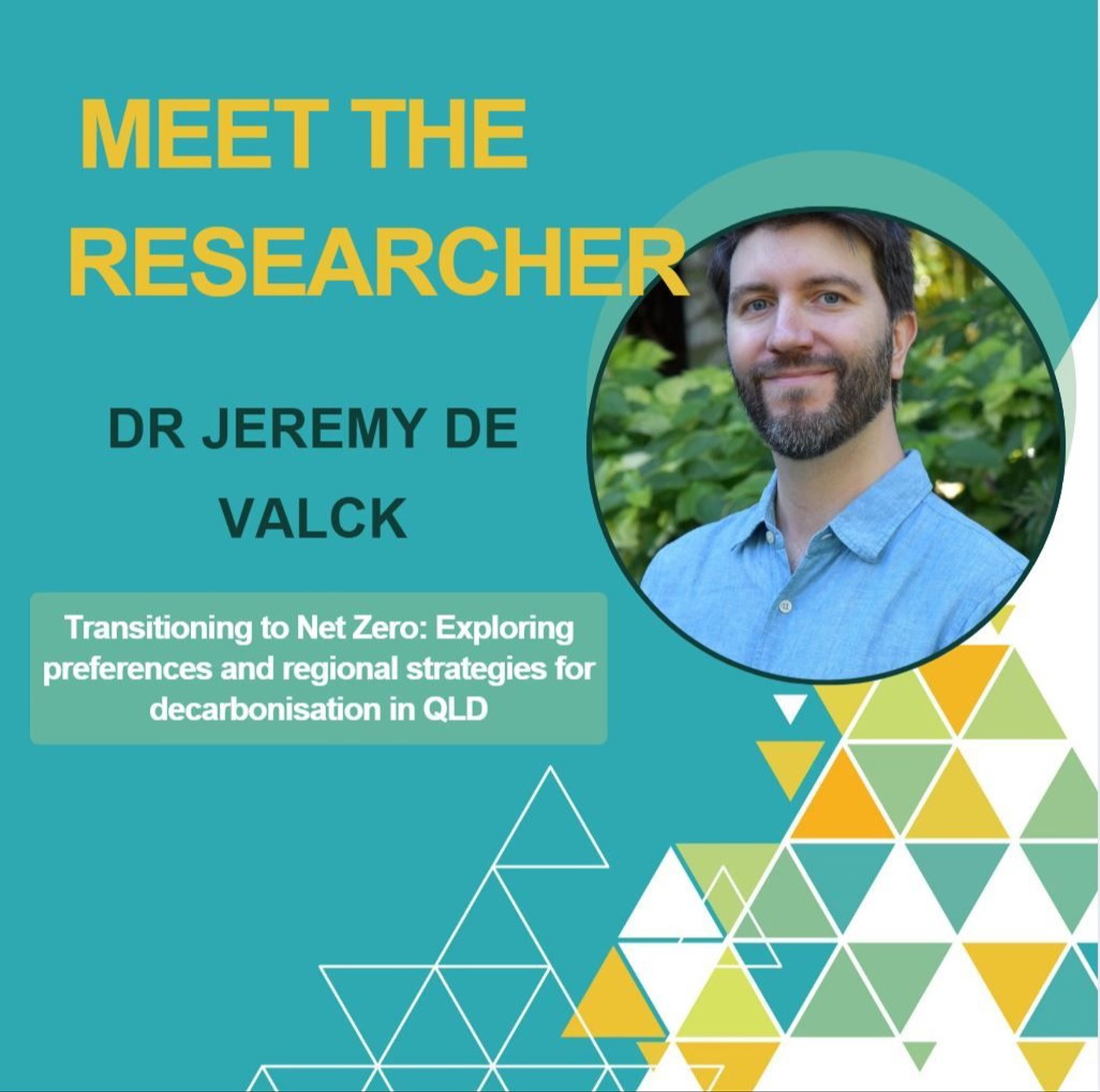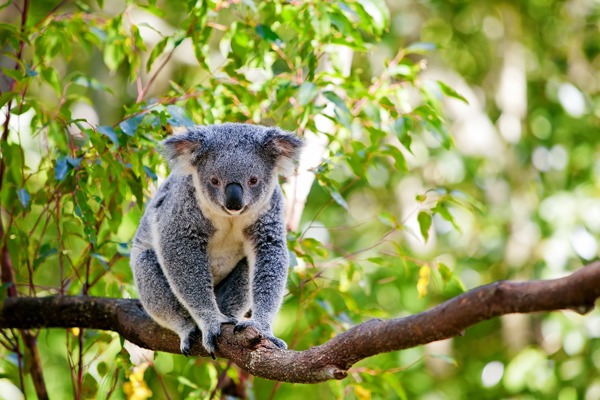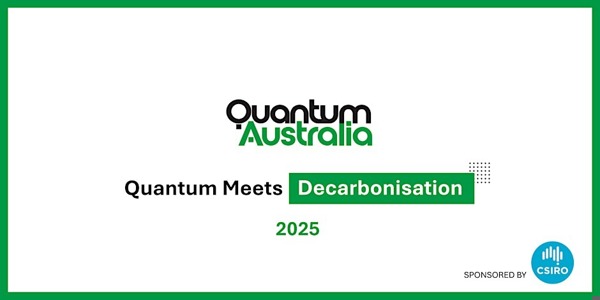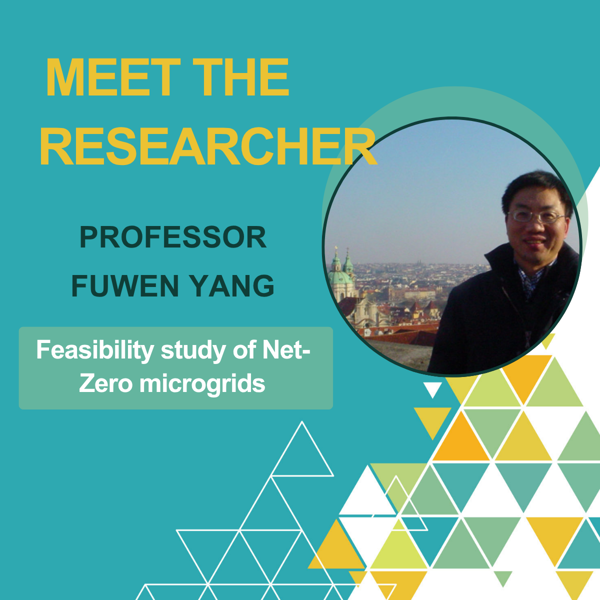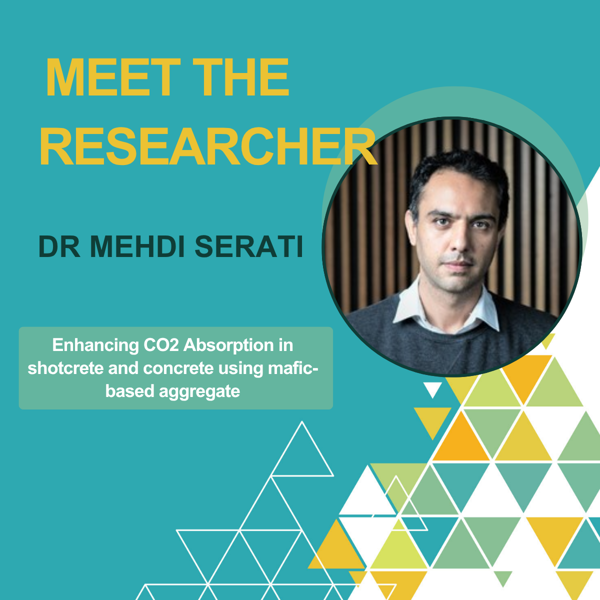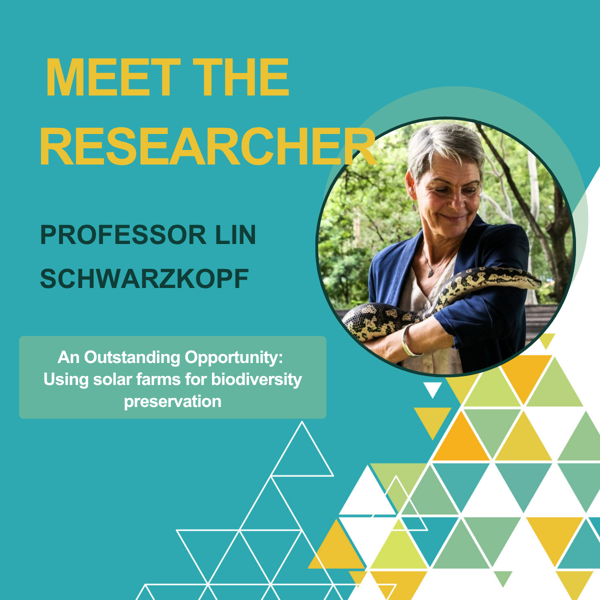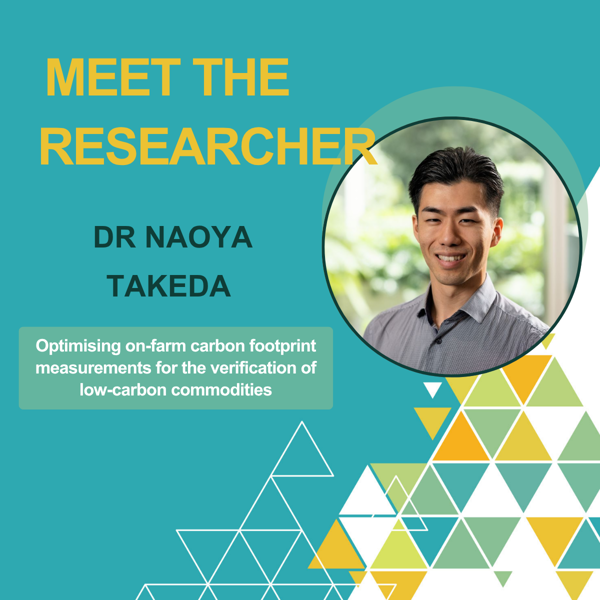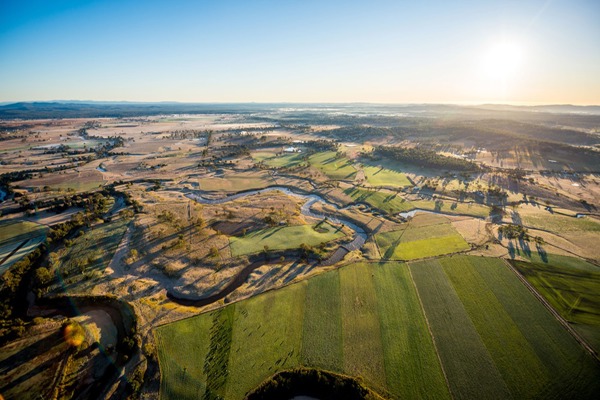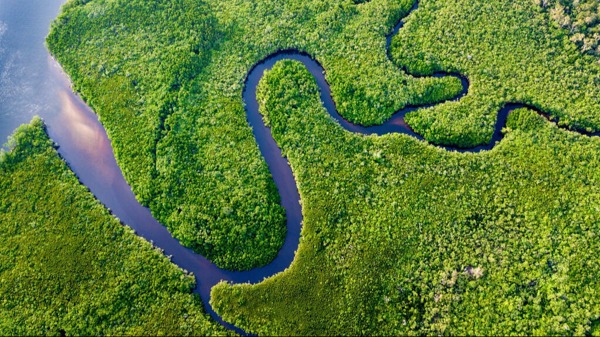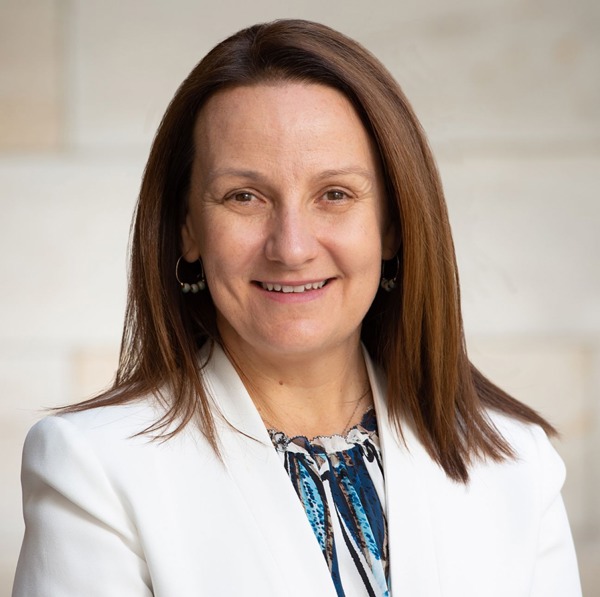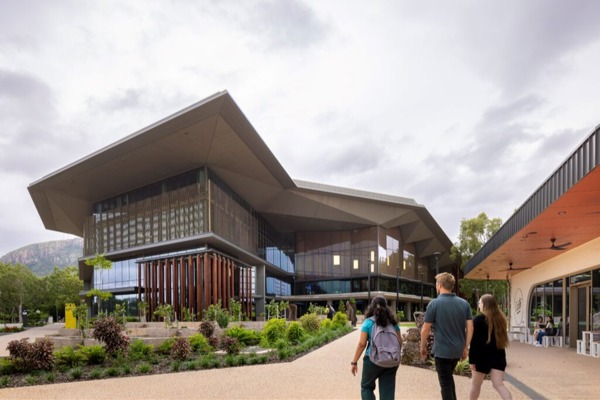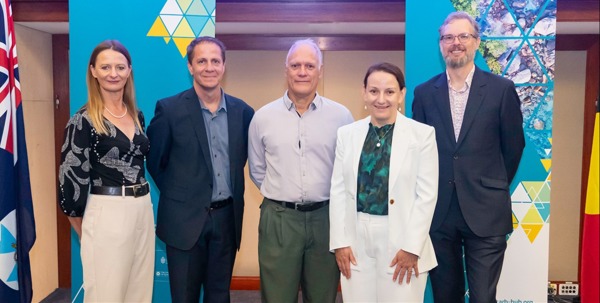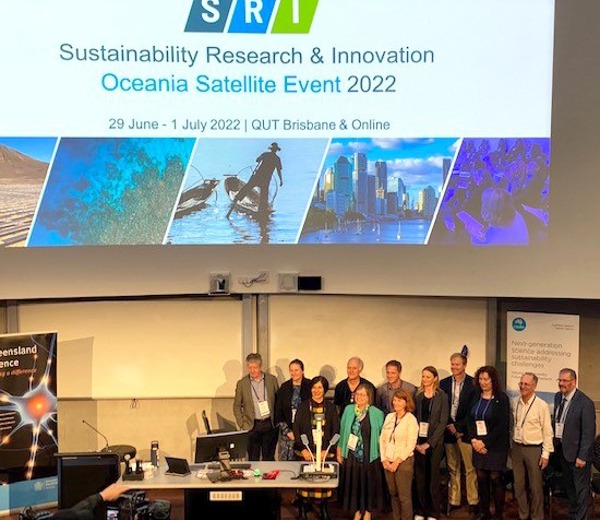Dr Jeremy De Valck is a transdisciplinary environmental economist at Central Queensland University (CQU), specialising in the valuation of environmental assets, ecosystem services, and biodiversity. He holds a PhD in environmental and resource economics from KU Leuven (Belgium) and has completed Masters degrees in Bioscience Engineering and Natural Resource Management. Since joining CQU in 2016, Dr. De Valck has led major research projects assessing socio-cultural, economic, and environmental impacts, particularly in the Great Barrier Reef region. His work employs non-market valuation techniques to inform sustainable natural resource management and regional development. Dr. De Valck is also affiliated with the Coastal Marine Ecosystems Research Centre (CMERC) and serves as Research Theme Leader for Rural and Regional Economies within the Centre for Regional Economies and Supply Chains (CRESC).
Dr De Valck is currently leading the Transitioning to Net Zero: Exploring preferences and regional strategies for decarbonisation in QLD project for the Qld Decarb Hub. We asked him a few questions about himself and his research:
- Describe your research project in a single sentence.
This project combines quantitative and qualitative analyses to examine regional community preferences for renewable energy transition strategies in Central and Northern Queensland.
- Can you introduce the key members of your research team and briefly explain what their roles/expertise and contributions to the project are (this includes you!)?
The project team consists of researchers from CQU and JCU.
- Dr Jeremy De Valck (CQU) leads the project. Jeremy is an environmental economist with many years of experience conducting discrete choice experiments, a key non-market valuation technique used in this project.
- Prof. John Rolfe (CQU) is a resource economist with decades of experience in regional development questions in Australia, especially Queensland. John provides expert guidance throughout the project, especially regarding the experimental design.
- Prof. Hurriyet Babacan (JCU) is a social scientist with decades of experience in regional development and community-related issues, including workforce development, health, and gender in the Australian context. Hurriyet leads the JCU part of the project work and brings vast expertise with interviews and qualitative analyses.
- Prof. Allan Dale (JCU) is a professor of tropical regional development with vast expertise in regional social and economic development. Allan provides some expert guidance through the project.
- Mrs. Jennifer McHugh (JCU) is a social scientist with vast experience conducting interviews and qualitative analyses. Jennifer plays a key role in conducting the interviews in Central and Northern QLD for this project.
- Dr Emma Nguyen (JCU/CQU) is a research fellow with expertise in qualitative analyses. Emma’s practical assistance is essential for the interviews to be conducted in Central and Northern QLD for this project.
- What first inspired you to take on this research topic?
The energy transition is a vibrant and timely research topic that perfectly aligns with my research interests as an environmental/resource economist. I was inspired by the opportunity to contribute to the Hub’s mission and to work alongside a community committed to real-world impact. If Queensland is to achieve a durable and equitable energy transition, we must understand community needs and address regional concerns. This is what motivates this research.
- What do you hope your research will contribute to the world?
As an economist, I don’t expect to make a radical breakthrough (that would be rather ambitious and probably cocky). Instead, I hope my work can provide a marginal contribution, i.e. a small but meaningful gain at the margin that enriches human consciousness and may help future generations thrive.
- What would make the biggest difference in helping your research have impact?
The biggest difference would come from translating this research’s results into actionable policy recommendations that can inform real decisions at the end (rather than just staying on paper).
- If you could amplify one positive trend already underway, what would it be and why?
We are currently witnessing an awakening of the people’s voice in various parts of the world and also in Australia, including the ‘silent majority’ that is often less in the spotlight. It’s inspiring to see citizens taking action, demanding that decision-makers listen and respond. I would personally love to see the environment become a central part of public debate, transcending political divides. I am encouraged by the growing number of small, positive actions and projects taking place at the local, state, and national levels in Australia. Most importantly, I believe we must focus on keeping younger generations optimistic about the future and empowered to contribute, in whatever way they can, to their communities and the environment.
- What does your dream job look like?
My dream job would be to keep doing what I currently do, because I enjoy it and I believe it matters, but probably at a more relaxed pace, without the constant need to chase funding or deadlines. 😊
- What does an ideal non-working day look like to you?
Just a day spent in the outdoors with my family. Exploring some new place. Sharing a good meal and enjoying plenty of laughter.
- In your opinion, what is the single best thing anyone can do to support decarbonisation?
Many sustainability recommendations aiming at reducing our carbon footprint are just common sense, a sense that we seem to be collectively losing. Practices like planned obsolescence must become illegal. Ultra-consumerism—even through brands claiming to be sustainable—needs to be stopped. Our energy consumption should be reassessed with our true needs in mind. The true cost of negative externalities should be borne by major polluters, so that it becomes no longer profitable to base our economy on reckless resource extraction. We also need to revive local supply chains, valuing and developing Australian know-how so that more of what we need can be produced locally rather than shipped halfway around the world. Change starts with the courage to do what common sense already tells us.
- What’s one fun fact about you?
I discovered ‘Bilbo the Hobbit’ and the ‘Lord of the Rings’ when I was 11, in the mid-90s, long before they became popular. They were just dusty old library books. I got hooked and have never really left the Tolkien universe since. I think Tolkien’s world quietly shaped my belief that we should protect what’s worth preserving and stand for what’s fair, even when the odds don’t look great.
Find out more about Dr De Valck's research and publications here.
